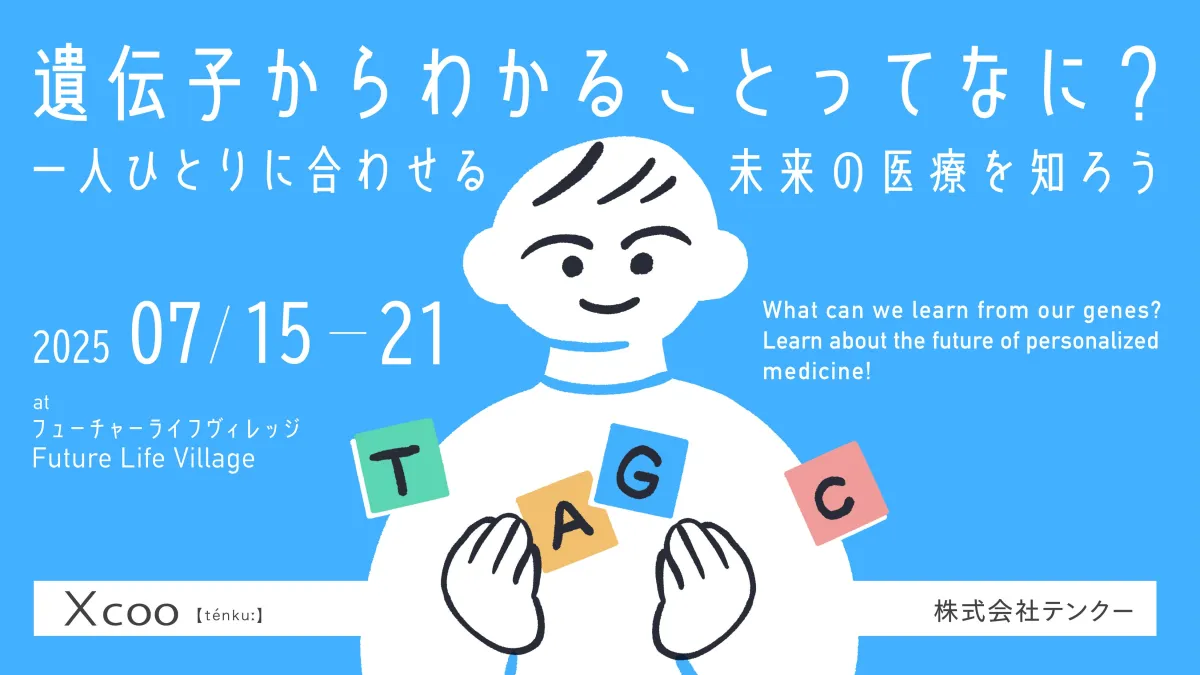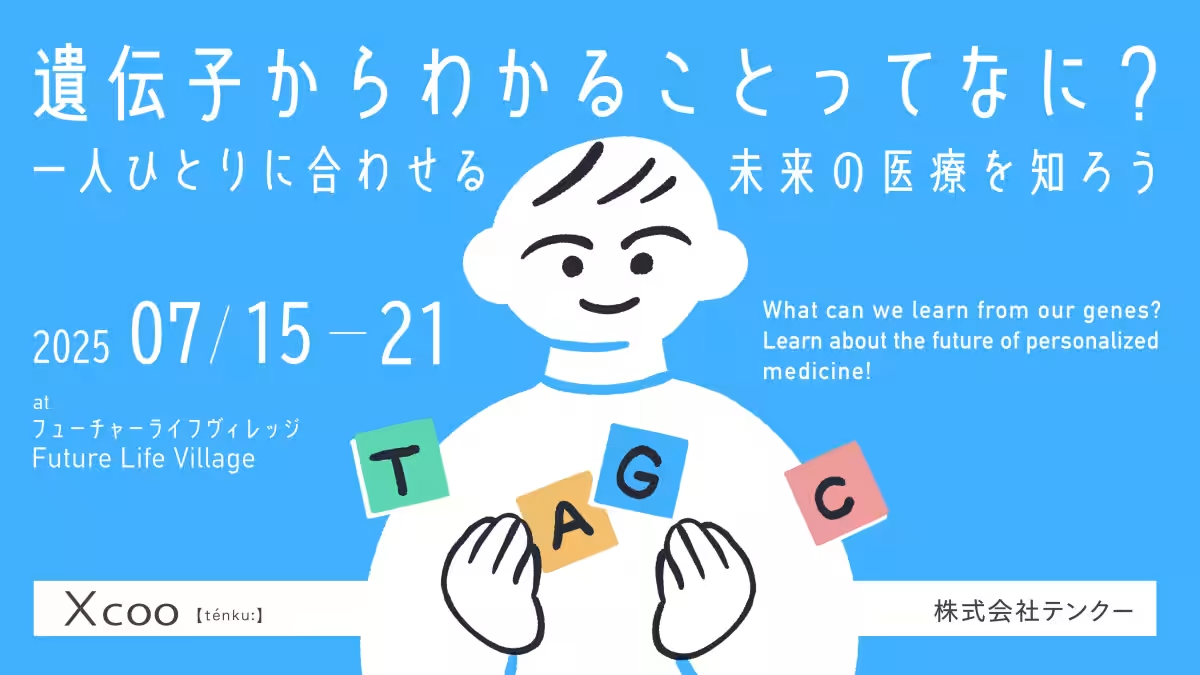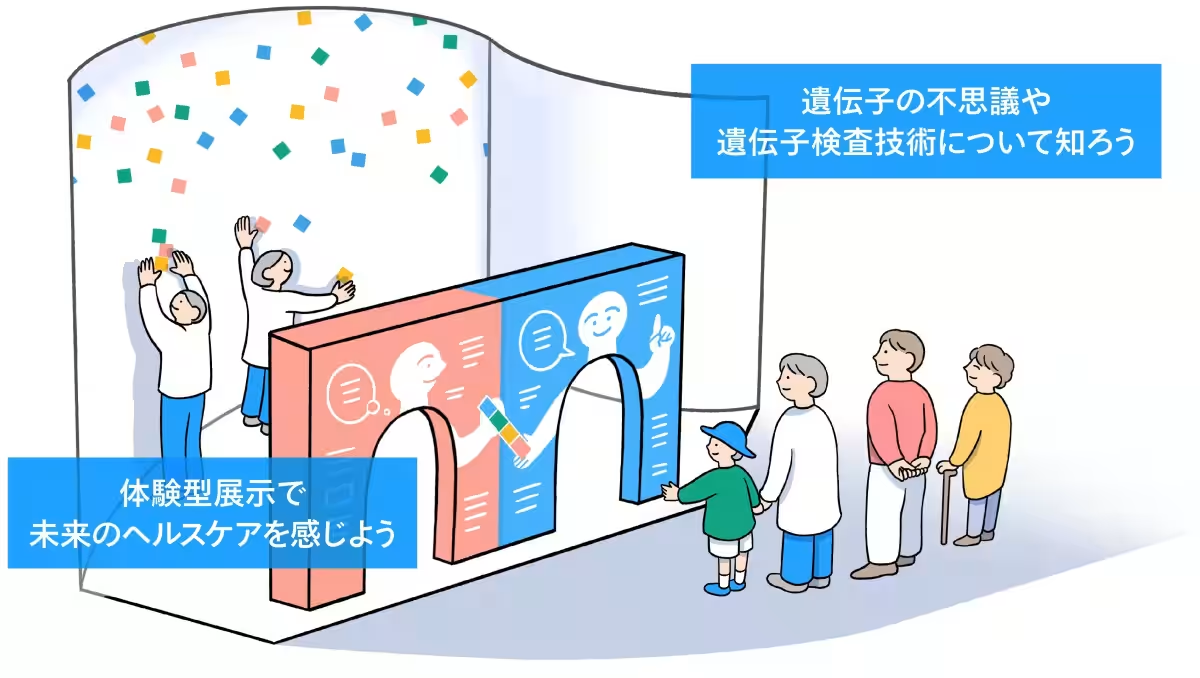

Exploring the Future of Healthcare Through Genetic Wonders at TENKU Exhibition
Exploring the Future of Healthcare Through Genetics
The TENKU Corporation is set to participate in the 2025 Japan Expo, officially known as the Osaka-Kansai Expo, with an inspiring interactive exhibition. From July 15 to July 21, attendees will dive into the fascinating world of genetics, under the theme: “What Can We Learn From Genetics? Discover the Future of Medicine Tailored to Each Individual.”
This exhibition is designed to engage visitors in thought-provoking experiences surrounding genetic understanding and the latest advancements in genetic testing technology. Attendees will not only learn about the science behind genetics but also experience a glimpse into the emerging field of personalized medicine—an approach that can revolutionize healthcare.
Background
In recent years, there has been a global surge of interest in precision medicine, especially within Japan. Unlike traditional medical practices that often apply a one-size-fits-all treatment, precision medicine focuses on tailoring interventions based on an individual's unique genetic composition, lifestyle, and environmental factors.
Genetic testing plays a pivotal role in this medical paradigm shift, allowing healthcare providers to select optimal treatments or preventive measures based on each patient's DNA. However, the adoption of genetic testing has faced obstacles, leading to significant challenges in societal integration. Patients may remain undiagnosed for extended periods, and cancer patients often struggle to explore personalized treatment options due to a lack of accessibility to genetic information.
To address these challenges, the exhibition aims to educate individuals of all ages—from children to seniors—about the potential and importance of personalized medicine, encouraging engagement and understanding through interactive experiences.
Exhibition Details
Title: “What Can We Learn From Genetics? Discover the Future of Medicine Tailored to Each Individual”
Duration: July 15, 2025 (Tuesday) - July 21, 2025 (Monday)
Location: Future Life Village (FLV), FLE Exhibition Area D6
Key Features of the Exhibition
- - Interactive Installations: Attendees can experience the sounds and lights associated with DNA codons, such as ATGC, through immersive multimedia presentations.
- - Panel Displays: Educational panels will provide insights and deepen understanding of genetic science.
- - Quiz-Based Stage Presentations: On July 15th, a quiz-style presentation will challenge visitors' knowledge while making learning enjoyable.
Press and Inspection Opportunities
During the exhibition, guided tours will be available for media representatives and relevant stakeholders. If you wish to participate, please get in touch with us using the contact information below.
Contact Information:
TENKU Corporation
PR Team
Email: [email protected]
Website: https://xcoo.co.jp/
About TENKU Corporation
TENKU is a Tokyo University spin-off specializing in data analysis, bioinformatics, and reporting for genomic medicine. With a commitment to high technical capabilities and innovative development, TENKU provides solutions such as Chrovis—total solutions for genomic and biological information analysis. The organization has received numerous accolades, including the Minister of Education's Award for university-derived enterprises.
Chrovis Clinical Annotation for cancer genomic reporting is designated as a priority review item by the Ministry of Health, Labour and Welfare regarding programmed medical devices (SaMD). Furthermore, in March 2025, TENKU signed an MOU with prominent institutions in Thailand to participate in the joint development of an AI platform for cancer genetic mutation interpretation.
Headquarters: Bunkyo, Tokyo, 2-40-8 Hongo
Representative: Kunihiro Nishimura
Established: April 2011
URL: https://xcoo.co.jp/
Business Activities
- - Development and operation of Chrovis—total solutions for genomic and biological information analysis
- - Development of high-speed data processing systems utilizing parallel distributed computing
- - Analytics and visualization systems based on advanced algorithms


Topics Health)










【About Using Articles】
You can freely use the title and article content by linking to the page where the article is posted.
※ Images cannot be used.
【About Links】
Links are free to use.